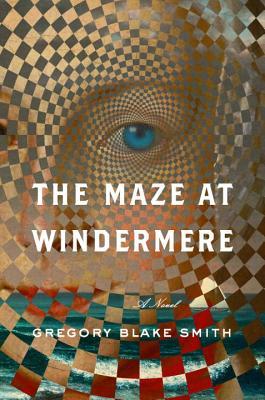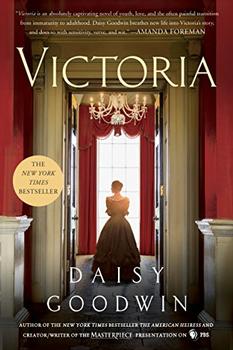Summary | Excerpt | Reading Guide | Reviews | Beyond the book | Read-Alikes | Genres & Themes | Author Bio

A Novel
by Daisy GoodwinWitty, moving, and brilliantly entertaining, The American Heiress marks the debut of a glorious storyteller who brings a fresh new spirit to the world of Edith Wharton and Henry James.
Be careful what you wish for. Traveling abroad with her mother at the turn of the twentieth century to seek a titled husband, beautiful, vivacious Cora Cash, whose family mansion in Newport dwarfs the Vanderbilts', suddenly finds herself Duchess of Wareham, married to Ivo, the most eligible bachelor in England. Nothing is quite as it seems, however: Ivo is withdrawn and secretive, and the English social scene is full of traps and betrayals. Money, Cora soon learns, cannot buy everything, as she must decide what is truly worth the price in her life and her marriage.
Witty, moving, and brilliantly entertaining, Cora's story marks the debut of a glorious storyteller who brings a fresh new spirit to the world of Edith Wharton and Henry James.
[The American Heiress is] good, plain old pleasure reading that provides an escape to a world that is opulent and glorious, which is a welcome digression in times of austerity and economic flux. The pages fly by, and in the two days it took me to read the entire volume, I let myself relax into a dramatic flight of fancy. It's worth reading for the fun of reading, for the sake of being whisked off somewhere dramatic and regal. While I'm not always in the mood to read a book that will simply mute the rest of the world, occasionally I am, and in those times a story like The American Heiress is perfect...continued
Full Review
 (528 words)
(528 words)
(Reviewed by Elizabeth Whitmore Funk).
During the Gilded Age (1865-1914), America experienced a boom in railroad tycoons and oil barons, and a great deal of wealth was concentrated in the real estate of Newport, Rhode Island. Wealthy families like the Vanderbilts and Astors flocked to Newport each summer, and as their appreciation for the New England coast grew, they built opulent mansions that were affectionately referred to as summer "cottages." These stately homes are immortalized in Edith Wharton's The Age of Innocence, from which Daisy Goodwin draws inspiration for The American Heiress.
 Many of the Newport mansions are constructed from imported Italian marble and are designed in the Beaux-Arts style (named after the École des Beaux-Arts in Paris where it was ...
Many of the Newport mansions are constructed from imported Italian marble and are designed in the Beaux-Arts style (named after the École des Beaux-Arts in Paris where it was ...

If you liked The American Heiress, try these:

by Gregory Blake Smith
Published 2019
A richly layered novel of love, ambition, and duplicity, set against the storied seascape of Newport, Rhode Island.

by Daisy Goodwin
Published 2017
Drawing on Queen Victoria's diaries, which she first started reading when she was a student at Cambridge University, Daisy Goodwin—creator and writer of the new PBS/Masterpiece drama Victoria and author of the bestselling novels The American Heiress and The Fortune Hunter—brings the young nineteenth-century ...
Flaming enthusiasm, backed up by horse sense and persistence, is the quality that most frequently makes for ...
Click Here to find out who said this, as well as discovering other famous literary quotes!